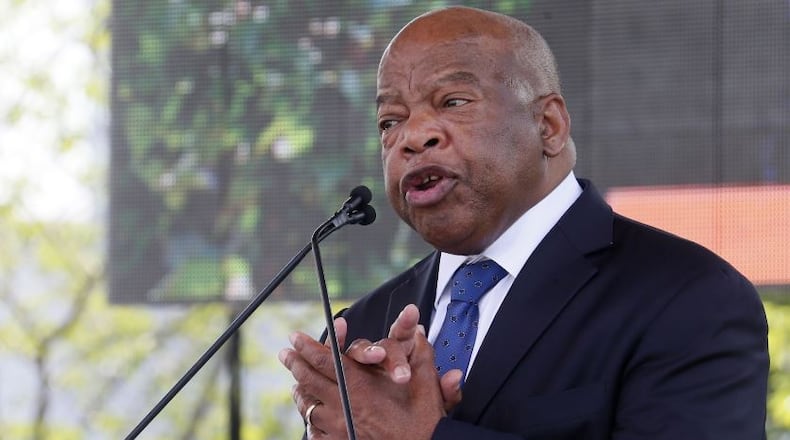Civil rights icon John Lewis walked back his comments dismissing Vermont Sen. Bernie Sanders' work on racial equality, saying he didn't intend to disparage the presidential candidate by saying of his time in the 1960s, "I never saw him. I never met him."
Lewis, a Georgia Democrat who has endorsed Hillary Clinton, said over the weekend that he wanted to clarify his remarks "in the interest of unity."
"The fact that I did not meet him in the movement does not mean I doubted that Sen. Sanders participated in the Civil Rights Movement, neither was I attempting to disparage his activism," he said in a statement.
The congressman has faced a torrent of criticism for the remarks, including from Rep. Keith Ellison, Sanders' lone supporter in the Congressional Black Caucus.
"He didn't see Bernie Sanders because Bernie Sanders was doing fair and open housing in Chicago - that's why he didn't see him. No matter how good your eyesight is, if you are standing in Alabama, you can't see people in Chicago," Ellison told CNN. "That doesn't mean he wasn't absolutely there, fighting for justice, fighting for open housing."
"I was responding to a reporter's question who asked me to assess Sen. Sanders' civil rights record. I said that when I was leading and was at the center of pivotal actions within the Civil Rights Movement, I did not meet Sen. Bernie Sanders at any time. The fact that I did not meet him in the movement does not mean I doubted that Sen. Sanders participated in the Civil Rights Movement, neither was I attempting to disparage his activism. Thousands sacrificed in the 1960s whose names we will never know, and I have always given honor to their contribution."
He also wanted to clarify a comment he made that suggested he knew the Clintons in the 1960s.
"If you take a look at a transcript of my statement, you will find I did not say that I met Hillary and Bill Clinton when I was chairman of SNCC in the 1960s. My point was that when I was doing the work of civil rights, led the Voter Education Project and organized voter registration in the South in the 1970s, I did cross paths with Hillary and Bill Clinton in the field. They were working in politics, and Bill Clinton became attorney general of Arkansas in the 1970s as well. That began a relationship with them that has lasted until today."
About the Author



